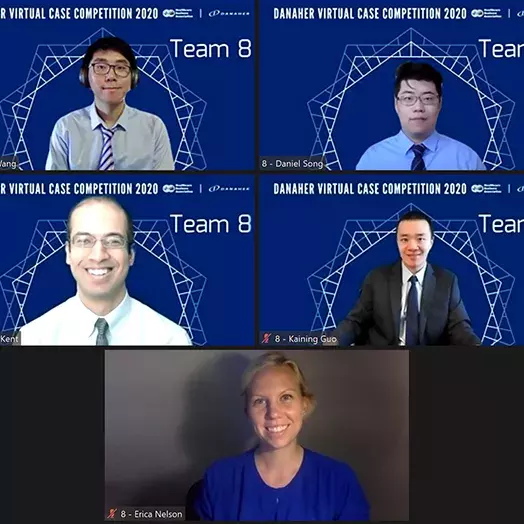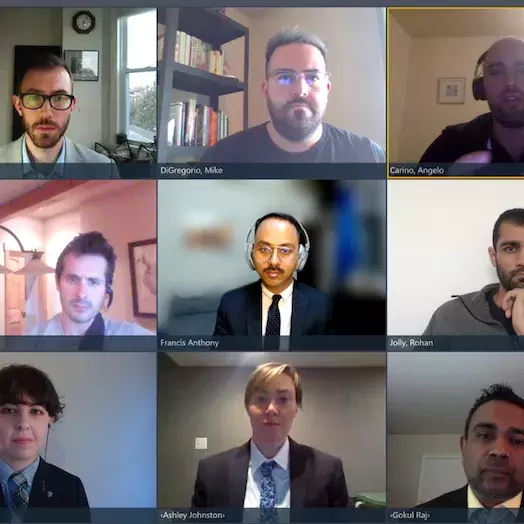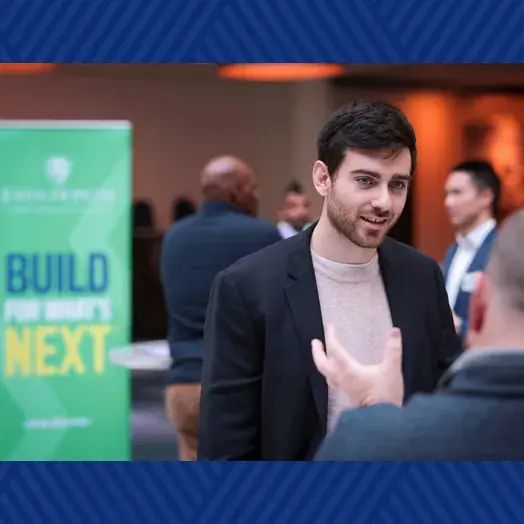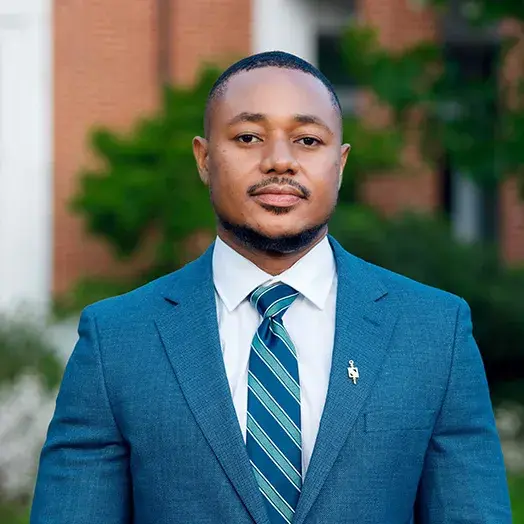
Hopkins teams take first, second in health care case competition
Johns Hopkins Carey Business School teams took the top two spots at the annual Health Care Business Association case competition, sponsored by Fortune 500 health innovator Danaher Corporation.
Sixty-four teams applied for 20 open spots. Of those applications, 16 were international teams, including Oxford and HEC Paris. Cut from 64 teams to the 20 that competed in the semi-finals, the field was then narrowed to a final round of nine teams. Finalists included four Johns Hopkins teams in addition to teams from Yale, McGill, Duke, and Georgetown universities and the University of Toronto.
The judges – all of them executives from Danaher and Cepheid, a Danaher subsidiary – included Danaher’s vice president of medical innovations, vice president of global innovations and diagnostics platform, and senior director of innovation. They used a blind system so they did not know which teams represented each school.
Johns Hopkins’ teams win big
Five Johns Hopkins students – including four from Carey Business School – comprised the winning team. Included were Kaining Guo (MBA candidate), Michael Kent (MBA candidate), Erica Nelson (MSN/MBA candidate), Daniel Song (MS in Health Care Management candidate), and Arthur Wang (PhD candidate in molecular cell biology and biochemistry).
Nelson and Kent attributed their win to building a team from students across Johns Hopkins (including a practicing nurse, cell biologist, financial analyst, and engineers) who are all passionate about solving challenging problems in health care.
“Our team members each brought a unique perspective and skillset to solving this problem in a creative, yet feasible manner,” said Nelson. “This competition was an incredible opportunity to collaborate with Hopkins students from other schools, draw on each other's strengths, and devise a creative solution to a relevant business problem.”
Erica Nelson , MSN/MBA candidate
What to Read Next

student experience
Carey places first at Amazon case competition“The diverse experiences and perspectives brought by each team member not only made this competition a rich and enjoyable learning experience for us, they also enabled us to develop innovative yet practical solutions for the case,” said Kent.
Song and Guo attributed their success to Carey Business School courses.
“In the health care management program, courses that address the big-picture issues [are] taught first. This helped me, with little health care background, to have an overall understanding of the salient issues that the U.S. health system faces,” said Song.
While the students have been successfully taking courses virtually, not everyone had experience collaborating on a case competition virtually. Guo added that the team had to find new ways to work together and present virtually.
“In the middle of this pandemic, preparing a case competition remotely is a unique experience. But our team managed to create meaningful and high-quality content,” said Guo. “And thanks to the business communication class at Carey Business School, our team was [able to] effectively pitch ideas through video conferences.”
The second-place team consisted entirely of Carey Business School students – Carlos Acosta (MPH/MBA candidate), Will Dinneen (MBA candidate), Scott Goldman (MPH/MBA candidate), Rachel Hill (MPH/MBA candidate), and Micaela Laber (MPH/MBA candidate).


